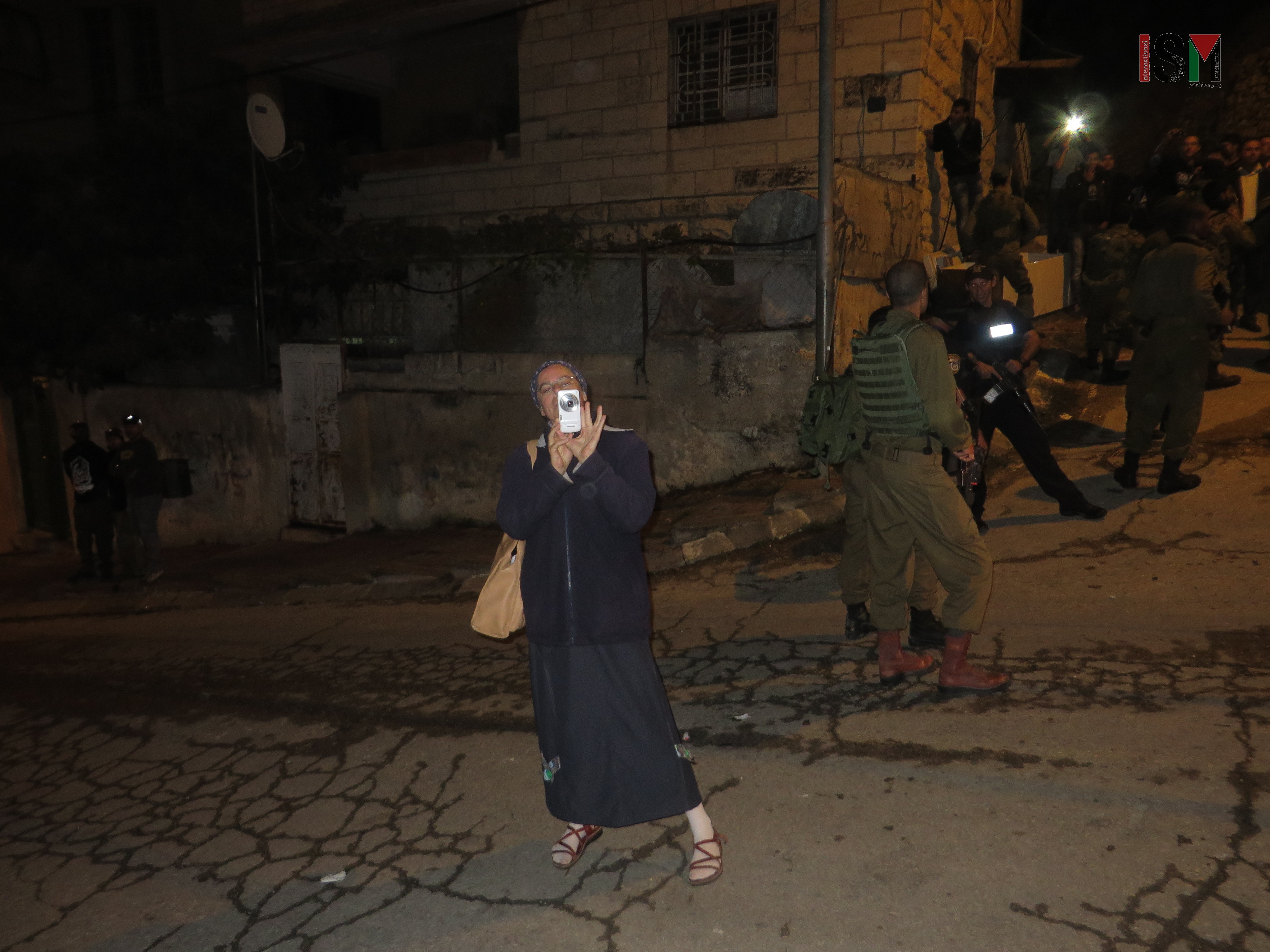Category: Video
-

The other occupation: Settlers terrorize Palestinians of the West Bank
11th October 2015 | International Solidarity Movement, Al-Khalil team | Hebron, occupied Palestine It was another emotional day for Palestinians in al-Khalil, (Hebron) after the burial of martyr Muhammad al-Jabari who was shot to death by Israeli forces near the entrance to the illegal Kiryat Arba settlement. Thousands filled the streets as the body of…
-

Non violent action by elderly Palestinian despite Israeli military violence
10th October 2015 | International Solidarity Movement, Al-Khalil team | Hebron, occupied Palestine Today on October 10th in Al-Khalil at around 13h, thousands attended the funeral of Mohammed Fares Mohammed Abdullah Al-Jabari, killed yesterday near Kiryat Arba at the hands of an Israeli police officer, after allegedly trying to stab him. After the funeral a…
-

Settlers march through occupied al-Khalil attacking, insulting and threatening Palestinians and internationals
7th October 2015 | International Solidarity Movement, Al-Khalil team | Hebron, occupied Palestine Yesterday night, October 7th 2015, a large group of settlers harassed, insulted and physically assaulted Palestinian residents and internationals in the Tel Rumeida neighbourhood of occupied al-Khalil (Hebron), injuring several. Around 08:00 pm, more than 50 settlers from the illegal settlements within…
